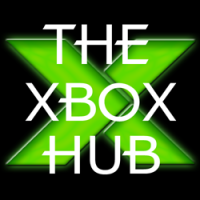The Xbox mobile app has grown to become a useful tool for Xbox and Windows gamers. From a slow beginning, its use as a game launcher, remote control, and screen recorder helps it reach a level of functionality that few game console mobile apps achieve. It’s also an instance where considerable potential has been left unexplored, and we want to look at what could be done to bring this app to the next level.
Limits in Achievement
As it currently stands, the Xbox app on mobiles is essentially a helpful system of shortcuts. It lets the user control their system without needing a controller, sure, but the effect of this isn’t universally helpful. Turning your phone into a remote control can be great if you’re watching Netflix, for example, but then smart TVs can do that anyway, without having to go through your Xbox for an additional step.
The same can be said about screen recording, which is nice but adds additional complexity to a feature which the Xbox can do better natively. Perhaps the only real standout feature is game streaming from local consoles, and it’s this ability we’d like to see expanded with future updates.

A More Capable System
Arguably the biggest advantage that Xbox has over Sony’s and Nintendo’s system comes from their ownership of Windows. This allows multiplatform support like no other platforms offer, and it’s this we’d like to see expanded on for native game support within the mobile Xbox app. Putting existing titles on mobile would be a huge boon to players, and it’s something that’s been explored and refined to great effect in other industries.
The standout of this approach is found in how online casinos expanded into mobiles with titles including slot games, poker, blackjack, and more. Developers NetEnt and Microgaming redesigned and relaunched many of their properties when smartphones began to dominate, and in doing so found an enormous new market. Players saw advantages this way through more bonuses like free spins and deposit matches, while casinos experienced success through greater player numbers. Both of these could be explored by Microsoft if it placed more attention on mobile offerings.
Preparing for the Future
The one major challenge in Microsoft becoming a key player on mobiles with native gaming would stem from limited hardware power. A game can launch on PC and Xbox at the same time because their processing power can be similar, but the same can’t be said for mobiles. While mobiles grow considerably more powerful over time, the faster phones today can’t match the Series S, so true multiplatform releases, at least for modern AAA titles, aren’t yet possible.
The counter to this idea is that not every title placed on mobiles needs to be new or AAA. Many indie, older, or Xbox Arcade titles could be scaled perfectly to smartphones and tablets. Through Microsoft’s well-designed emulation tools, it could also be possible to port many original Xbox games to mobile systems at full speed. This would open up hundreds of classic experiences on the go, with new titles introduced continually as mobile processing power grows.
While the focus of Microsoft has to be on its console and PC lineup, and the acquisition of Bethesda and Activision Blizzard, we have to assume the company is also looking at the mobile space. Mobiles have already become the most profitable arm of the gaming arena, and Microsoft will undoubtedly seek new horizons. Whether it will take the step of pushing its full console and PC experience onto mobiles remains to be seen, but as people who wouldn’t mind playing Halo 2 on the go, we know what we’re hoping for.








